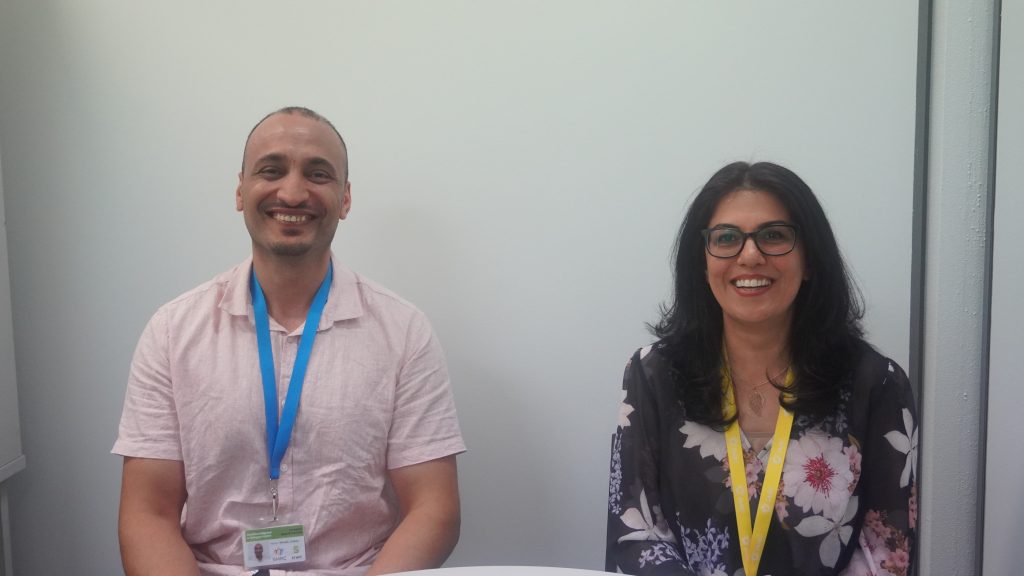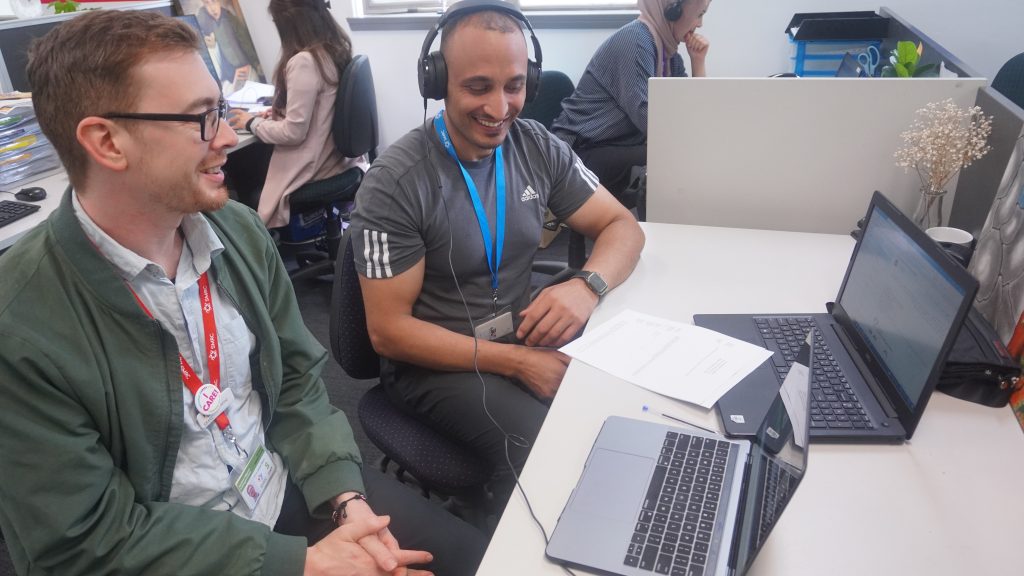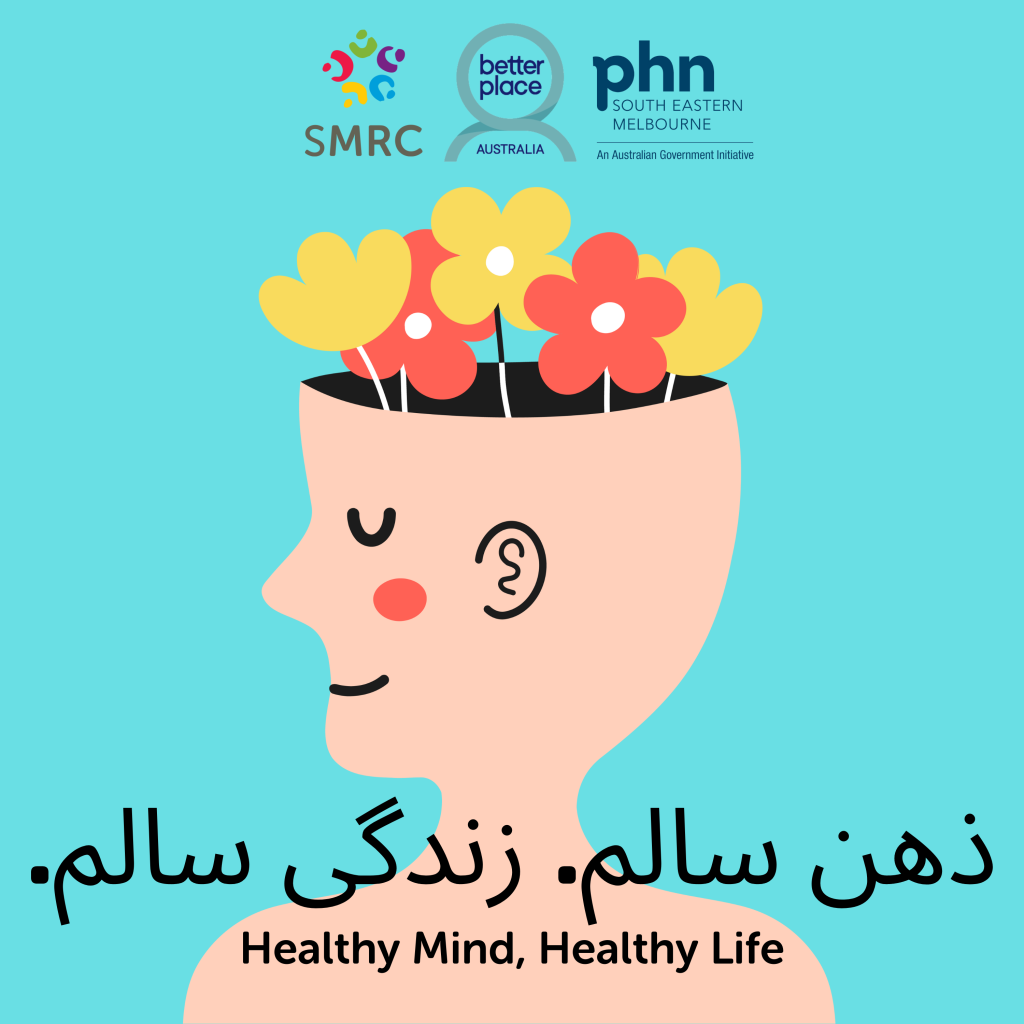Behind the scenes with the Healthy Mind, Healthy Life podcast team
Sitting down with members of SMRC’s settlement team Malahat, Mirwais and Jesse, you can immediately feel the passion, enthusiasm and hope they have for bringing to life the Healthy Mind, Healthy Life (ذهن سالم. زندگی سالم) podcast for Dari speaking communities across Australia.
Speaking about the wellbeing and mental health challenges of settling in a new country can be difficult for many newly arrived groups. Mirwais, a Bicultural Program worker overseeing development of the podcast has a personal connection to some of the challenges raised throughout the series, having been in Australia for only five years. “Before being part of the podcast, I didn’t know what mental health is. And I learned lots of things from each episode”, he shares. “We invited different people from different backgrounds, different professional specialists like psychologists, religious scholars and other community leaders who can speak about their experience.”
Malahat, a Bicultural Settlement Caseworker, has seen first-hand the sensitivity surrounding mental health, particularly in the Afghan community where she says people don’t feel comfortable talking about it. Having hosted a number of podcast episodes, Malahat invites the community to lean into the conversation. “This is a very safe space and a very accessible space [where] members of the community sit in a very casual manner. They’re talking about mental health and their own experiences with mental health issues. Real stories of life have been brought up and a lot of people have connected to it.”
Senior Settlement Coordinator Jesse says a key aim of the podcast is to normalise mental health as something that everyone experiences. “Trying to reduce the taboo. Normalising just having a conversation about mental health and reducing things like drug and alcohol use, gambling, suicide or family violence.”

The team chose a podcast as the best medium for accessibility, shareability and reach. “It’s a medium where people can listen to it wherever they are, in their own time. And it can be a private thing as well, you can just have it,” Jesse says.
The team is proud of the final product and were pleased to learn some new skills throughout its development. “Sometimes you don’t know that you’ve got some of those skills until you have to present them or use them. It freshened my Dari writing at the same time, because I was writing [notes] in Dari, and [I used] a bit of interpreting because there are technical words in English that we had to convert to Dari” first-time host Malahat says. For Jesse, it was practical skills; “I built skills in podcasting and making things myself, so that was fun”.
Having knowledge from his studies in Mass Communication, Mirwais lead the editing and post-production. “I didn’t have the experience to edit, but I’m learning through these podcasts. This was a big experience for me. It’s a valuable thing that I’m learning.”
The trio also share a deep appreciation for what they’ve learnt through getting to know and hear from a wide range of professionals in the Afghan community. For Malahat, it was realising just how in demand mental health support is, particularly services in language, especially Dari, and that these specialists exist and are available to provide supports. Mirwais speaks on the impact of learning about mindfulness. “I learned a lot about mindfulness, which is a meditation on how to take care of yourself. And the short and practical [skill] which sometimes I practice when I’m alone. So it helps me a lot.”

The team is confident people will find value in the series. “It’s always valuable to listen to new things. And knowledge is power. It’s out there for you. [there is] evidence-based material that you can use in your day-to-day life, Malahat says” Mirwais agrees. “These podcasts give you a little bit of information on how to take care of yourself. And you will get to know that sharing mental health is not shameful.”
For Jesse: “I see that if we can do some work in this space, then that may help to create happier, healthier communities.”
“There is value to be gained from just having these conversations more publicly. I think you’ll enjoy it. Give it a go.”
Listen to the episodes on Spotify, Google Podcasts, Apple Music or Anchor FM.
The Healthy Mind, Healthy Life podcast is brought to you by the Southern Migrant and Refugee Centre, Better Place Australia and the South Eastern Melbourne Primary Health Network.



 0397671900
0397671900 smrc@smrc.org.au
smrc@smrc.org.au

